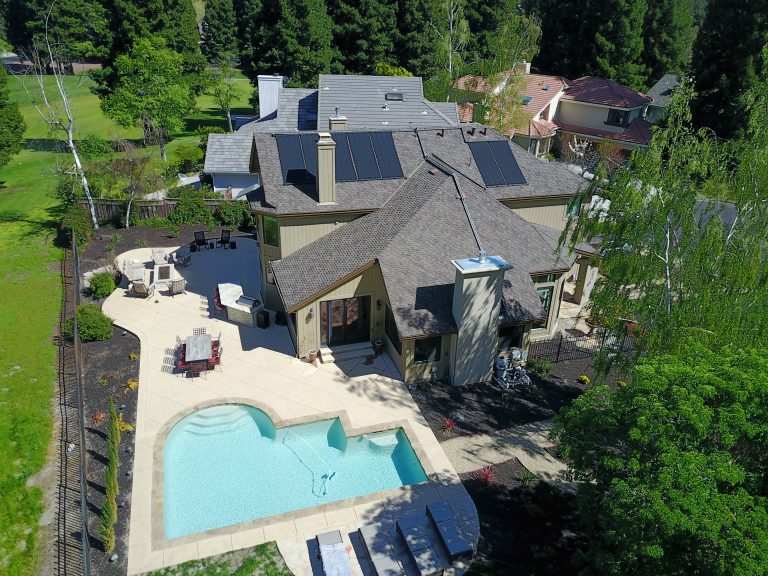Understanding How Solar Panels Absorb Light
Are you considering solar panels for your residence? Are you asking yourself do solar panels absorb light? Understanding how these panels transform the sun’s raw energy into usable electricity is essential. The mechanics behind solar panels can seem complex, but a basic understanding can clarify their operation. This guide breaks down the energy source that fuels solar panels.
Do Solar Panels Absorb Light or Require Heat?
When installed, solar panels on rooftops or ground-level areas are exposed to the sun’s heat and light. But what is the primary source they use to generate electricity? Despite absorbing both, solar panels need light primarily, employing the photovoltaic effect to convert sunlight directly into electricity.
Contrary to some beliefs, it is light — not heat — that primarily powers the electricity generation process. In fact, excessive heat can impede the efficiency of converting light into electricity. Although solar panels absorb heat, they prioritize light for energy production. This distinction is crucial for photovoltaic (PV) panels, the standard type for generating electricity.
Can Solar Thermal Products Utilize the Sun’s Light?
The simple answer yes. Our solar thermal collectors, specifically in solar pool heating, collects heat from the sun’s ray to warm water for pool heating purposes. According to the roof orientation and the sun positioning, our solar collectors use its internal function of absorbing the light and using the roof’s heat that bounces off the roof, to maximize its pool heating for desired temperature.
Can Solar Panels Utilize the Sun’s Heat?
While standard PV solar panels focus on light, there are also thermal solar panels designed to harness the sun’s heat. Solar panels absorb heat in these systems to produce electricity indirectly, typically through heating water or creating steam. However, due to their complexity and dependency on weather conditions, thermal panels are less popular for residential use compared to their light-dependent counterparts.
Why is Light Energy Preferable for Electricity Production?
The efficiency and reliability of using the sun’s light make PV solar panels a preferable choice for residential energy solutions. Light, including invisible spectrums like infrared and ultraviolet, can be converted into electricity. This method allows for diverse optimization, ensuring that panels can be positioned for maximum sunlight exposure regardless of weather conditions.
On the other hand, solar panels that rely on heat are less adaptable. Their efficiency depends heavily on temperature, making them less reliable than light-dependent panels. High temperatures can also increase the electrical resistance in circuits, further reducing efficiency.
Exploring Solar Panel Options for Your Home
Interested in the different solar panel technologies available for your home? Investigating the benefits of light-dependent PV solar panels can help reduce electricity bills and increase your home’s value. Explore our Solar Pool Heating page for more information on how to harness solar energy effectively.



